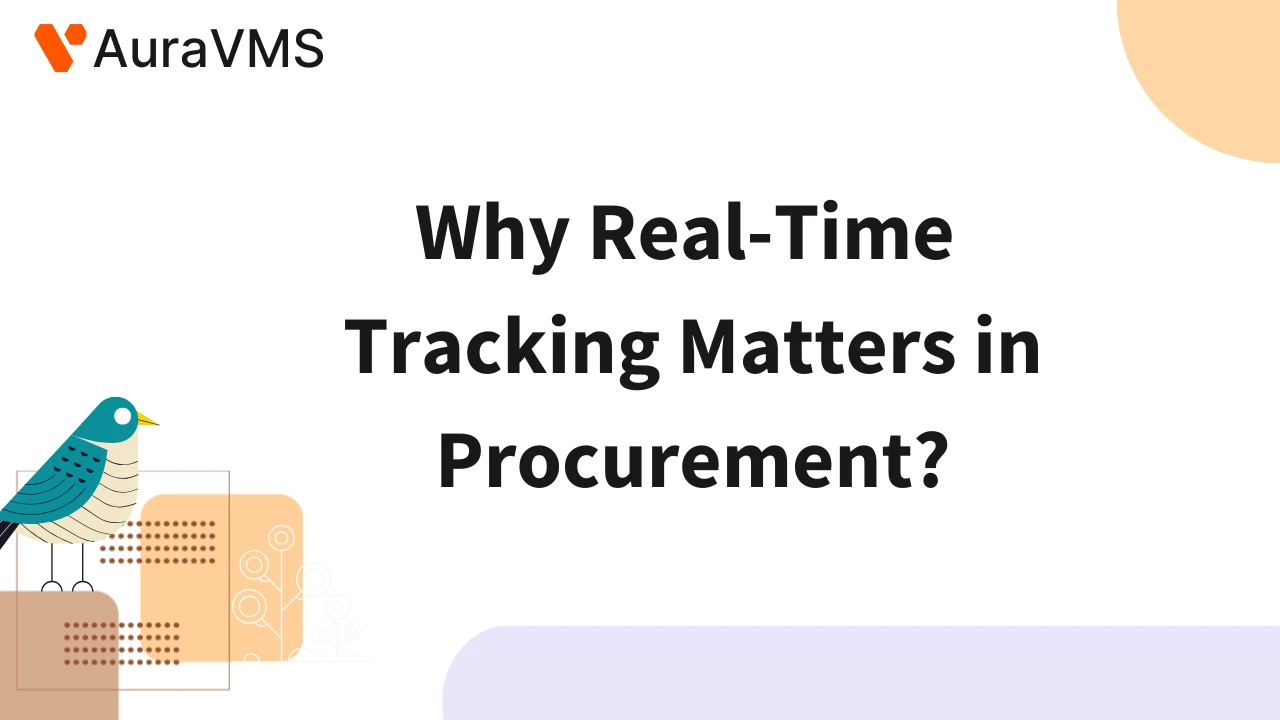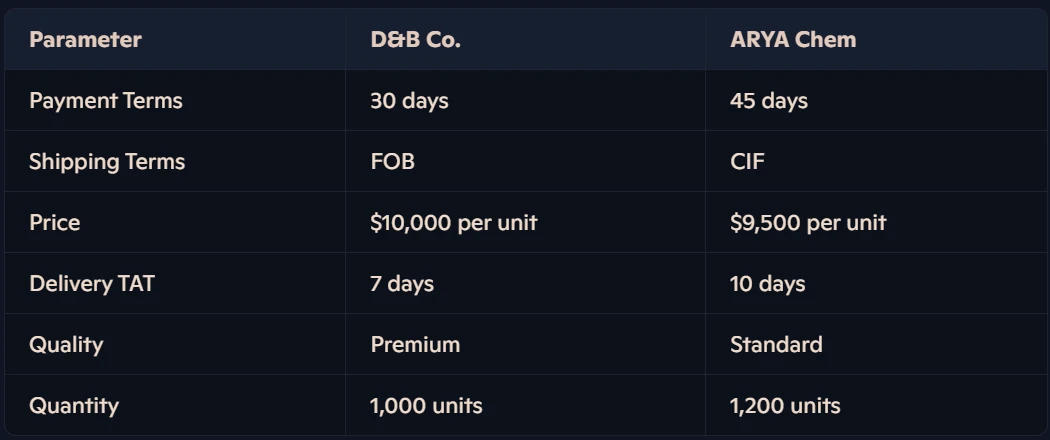How to negotiate right payment terms with suppliers as a small business
Feb 9, 2025
Better payment terms with small margins can get you more profits than horrible payment terms with huge margins
Published By AuraVMS
What Are Payment Terms?
Payment terms are the conditions under which a seller expects to be paid by a buyer. They specify the timeframe for payment, any applicable discounts for early payment, and penalties for late payment. When you receive quotations from suppliers, clear payment terms help prevent confusion and establish expectations between your businesses, thereby fostering healthy business relationships between you and your suppliers.
Common Payment Terms
Net days:
Net 30 days is the most common term used by small businesses. It requires payment within 30 days of the invoice date, balancing the needs of both parties by allowing clients enough time to manage their cash flow while ensuring timely payments to suppliers.
Net 60 or 90 days is more common in capital intensive, low margin and high competetion businesses like Generic Pharmaceutical manufacturing, Commodity Chemicals manufacturing and more. It gives you ample amount of time to complete your production cycle and even deliver the product to your customers in most cases.
Net 15 or 10 days: These shorter terms require payment within 15 or 10 days respectively. They are useful for businesses that need quicker cash flow and can encourage prompt client payments. Generally short payment terms are common in supplier driven markets where there is slightly more demand for certain materials and suppliers than there is supplier.
Cash on Delivery (COD): Payment is collected when goods or services are delivered. This method eliminates delays in receiving payment and can enhance immediate cash flow. This method also gives buyers time to examine the product and increases trust in suppliers, while suppliers get paid upfront instead of involving any credit cycle.
Payment in Advance (PIA) requires full or partial payment before work begins. It's often used for projects with significant upfront costs, helping to mitigate financial risk. And this is more common in industries and markets where there is significant trust deficit among suppliers and buyers or there are monopolies among suppliers.
End of Month (EOM): Payment is due at the end of the month in which the invoice is issued. This term aligns payment with the billing cycle rather than delivery dates.
Discounts for Early Payment: Terms like "2/10 Net 30" offer a 2% discount if payment is made within 10 days, incentivizing quicker payments while still allowing a full 30 days for those who need it. Typically such discounts are offered by all suppliers offering credit to encourage buyers to pay upfront and improve their own cashflow. Buyers with capital or cheap access to capital can avail such discounts in industries where credit cycles are common and they end up getting preferential treatments from suppliers and higher margins than their competitors.
Importance of Setting Appropriate Payment Terms
When you send our your request for quotations (RFQs), many types of suppliers will respond to it. But there are a few parameters more important than the price for example, delivery terms, quality and more. Payment terms is one of those. Hence, choosing the right payment terms is essential for managing cash flow effectively. Here are some considerations:
Industry Standards: Check for common practices in your industry. This often creates a benchmark for both suppliers and buyers. So you can use it to make your capital management more predictable.
Margin vs Cash Flow: Generally speaking, longer the repayment period, higher the price. Because the increase in price includes the cost of capital that was involved in the deal. So while long repayment periods can import your business's cash flow, it can severely hamper your margins. Finding a balance is key.
Regular Review: Periodically reviewing and adapting your payment terms ensures they remain aligned with your business needs and market conditions.
Building a reputation of timely payee
When you take a loan from the bank, and any form of loan including credit cards or personal loan or business loan, if you pay the money to the bank in advance or at least on time, the bank will treat you as a high quality customer. Meaning, they will lend you more money, for longer tenures and at lower interests.
In the same way, if you pay your suppliers in before due-date or at-least on time, they will prioritize your deliveries, closely monitor the quality of their delivery, respond faster to you RFQs, give you better price and longer credit period. Reputation is the key in credit business :)
Conclusion
For small businesses, negotiating favorable payment terms with suppliers is vital for financial health. By understanding standard practices and evaluating your needs during the RFQ process, you can facilitate easy comparison of offers. Companies use software like AuraVMS to make it easy to collect and compare payment terms, shipping terms, prices, delivery turn around time, and more. Regularly revisiting these terms will help you adapt to changing market dynamics, ultimately leading to improved cash flow and stronger supplier relationships.





























































